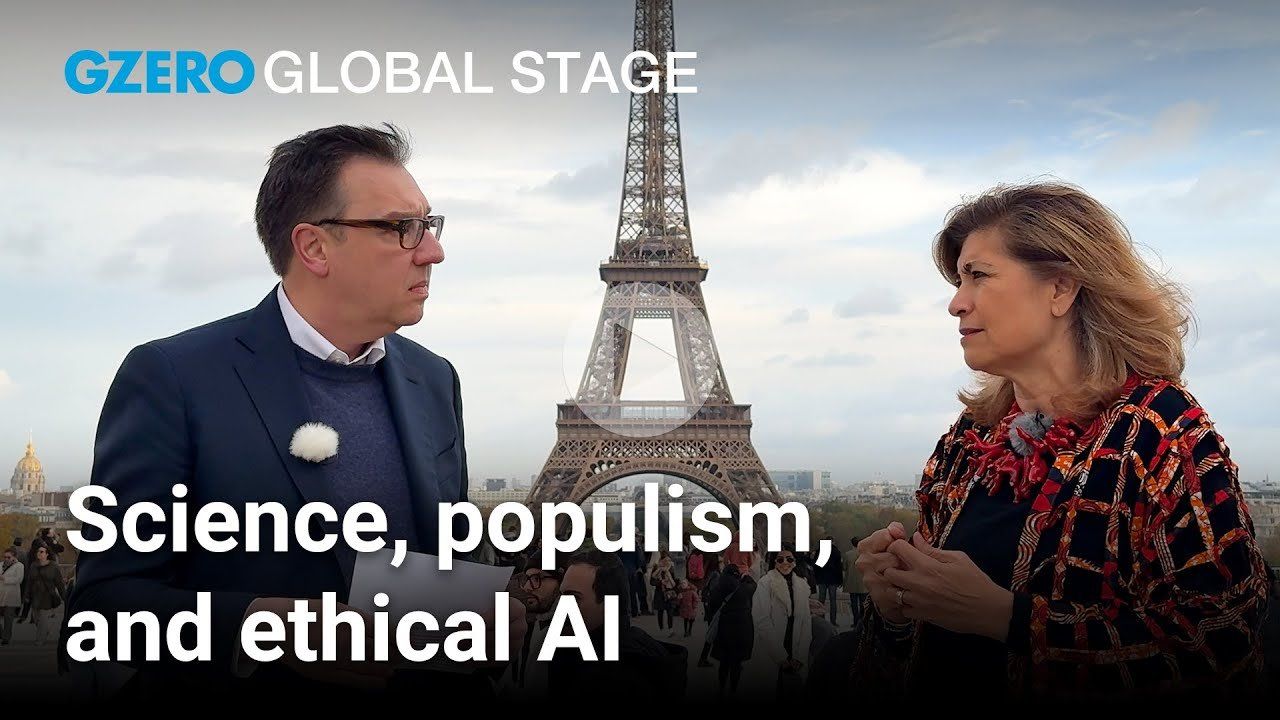Paris Peace Forum
Protecting science from rising populism is critical, says UNESCO's Gabriela Ramos

- YouTube

In a GZERO Global Stage discussion at the 7th annual Paris Peace Forum, Gabriela Ramos, Assistant Director-General for Social and Human Sciences at UNESCO, highlighted the crucial role of science in fostering peace and expressed concerns over rising populism undermining scientific efforts.
"We need good science to navigate these waters... If you don't invest in scientific endeavors, it's going to be problematic," she said.
Ramos also addressed the challenges of artificial intelligence potentially widening global inequalities due to its concentrated development in a few countries. Emphasizing the need for ethical AI, she stated, "We need to invest to change it because AI is amazing. It's a promising tool, so we really need to get it right."
UNESCO is proactively addressing these challenges by framing an international standard for ethical AI, developed in collaboration with 194 countries. "We move away from a technological discussion to a societal one to say, is it enhancing our human rights? Is it not discriminating? Is it helping us with the environmental transition? And if the answer is no, we need to invest to change it because AI is amazing. It's a promising tool, so we really need to get it right," Ramos asserted.
This conversation was presented by GZERO in partnership with Microsoft at the 7th annual Paris Peace Forum. The Global Stage series convenes global leaders for critical debates on the geopolitical and technological trends shaping our world.
People in support of former South Korean President Yoon Suk Yeol rally near Seoul Central District Court in Seoul on Feb. 19, 2026. The court sentenced him to life imprisonment the same day for leading an insurrection with his short-lived declaration of martial law in December 2024.
65: The age of former South Korean President Yoon Suk Yeol, who was sentenced to life in prison on Thursday after being found guilty of plotting an insurrection when he declared martial law in 2024.
In an era when geopolitics can feel overwhelming and remote, sometimes the best messengers are made of felt and foam.
The Hungarian election is off to the races, and nationalist Prime Minister Viktor Orbán is facing his most serious challenger in 16 years.
Does skepticism rule the day in politics? Public opinion data collected as part of the Munich Security Conference’s annual report found that large shares of respondents in G7 and several BRICS countries believed their governments’ policies would leave future generations worse off.